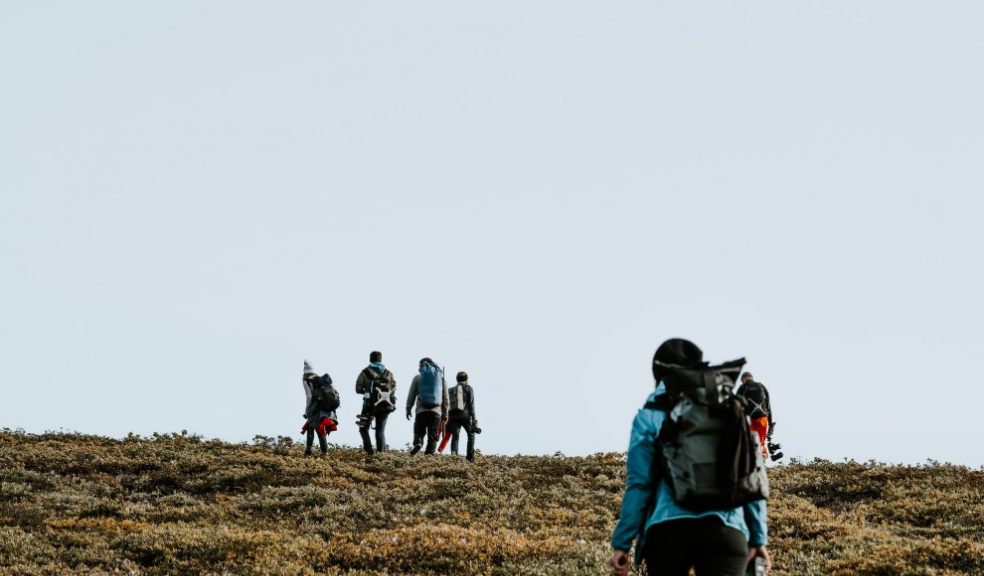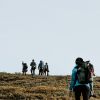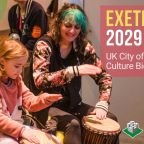
Tracing the Duke of Edinburgh’s Award back to Gordonstoun School
The infamous Duke of Edinburgh’s (DofE) Award has become increasingly popular since its launch 65 years ago, and many schools offer the programme to enrich academic curriculums. This means students can team their academic achievements with an out-of-classroom qualification that is widely recognised around the world. Countless employers value the award, which offers young people a life-changing experience to develop practical skills, problem solve, and become an integral part of a team.
Though many schools offer the DofE Award, few people have traced the award’s history back to its roots at Gordonstoun School. Here, we’ll explore the history of the prestigious DofE programme and take a look at what the award means today.
The History of the Duke of Edinburgh’s Award
The Duke of Edinburgh’s Award traces back to Gordonstoun’s founder, Dr Kurt Hahn, who opened the school in 1934. The co-educational school sits in a 200-acre wooded estate in Moray, North Scotland, where students from around the world enjoy Gordonstoun’s rich heritage of academic, sporting, and creative achievements. When Hahn opened the school, he encouraged students to work towards the Moray Badge, allowing children living nearby to get physical training, take part in expeditions and complete a project in order to earn the award. One of these students was Prince Philip – the Duke of Edinburgh himself – who was a student at the school.
The badge became so successful that Hahn later decided to develop it into a national award. He consulted Prince Philip, and together they formed the Duke of Edinburgh’s Award in 1956. Since then, schools in over 140 countries have encouraged millions of students to take part in the DofE programme to develop confidence, character, and friendships at both Silver and Gold level.
The Duke of Edinburgh’s Award Today
The Duke of Edinburgh’s Award has evolved over the years. Today, the DofE programme is a registered charity for 14–24 year olds who want to gain essential skills for personal and professional development. Young people pursuing the award complete physical activities, practise individual skills, embark on expeditions, and volunteer to support charitable organisations.
It’s important to note that the DofE Award isn’t competitive. Instead of competing against each other, participants set personal goals and push their boundaries to move beyond their comfort zones. This way, young people can develop confidence, become more resilient, and improve their problem-solving skills.
DofE participants must complete four ‘sections’ to achieve Bronze and Silver status and five to achieve Gold. Participants should allocate at least six months to complete the Bronze and Silver Awards and at least 12 to complete the Gold Award. The four sections include: ‘volunteering’, ‘physical’, ‘skills’, and ‘expedition’ categories – plus a ‘residential’ section for those pursuing the Gold Award. Young people can combine their chosen activities in a personal activity programme, which they can draw up to suit their interests. They can then track their progress in detailed activity logs, which they can access online or through the DofE app.
Volunteering Section
The volunteering section of the DofE Award encourages participants to give back to their local communities by supporting not-for-profit organisations. Participants may support locals, the environment, or animals by working with a charitable organisation of their choice.
Physical Section
Participants can develop a physical skill by practising any hobby that requires a sustained level of energy. For example, they may pursue a sport, dance, or fitness activity. However, the DofE programme considers sports coaching ‘volunteering’ and classes learning how to coach as a practice for the ‘skills’ category. Therefore, the physical activity must involve a sports or fitness performance.
Skills Section
Participants must also practise a specific skill and prove they have broadened their knowledge through this practice. This skill should not be a physical ability, as DofE classes fitness activities under the ‘physical’ section. However, students may pursue a physical interest from an academic perspective in this category. For example, they may practise horse-riding for their physical section and learn about caring for horses in the skills section.
Expedition Section
The expedition section requires participants to plan, train for, and complete an unaccompanied expedition. They must also prepare for their mode of travel, complete at least one practice run before the assessed expedition, and give a presentation on their experience. Participants may complete their expedition on foot, in a wheelchair, by bicycle, by boat, or by horseback.
Residential Section
Those pursuing the Gold Award must also undertake a four-night residential challenge. Participants must complete a shared activity or course with people they don’t know in a residential setting away from home. As long as participants sign up to complete residential activities with a registered charity, organised group, or Approved Activity Provider – without relatives or friends – they can select any activity that will broaden their knowledge, interests, and experiences.
Receiving the Duke of Edinburgh’s Award
Participants who achieve Gold Awards can attend a Gold Award Presentation (GAP) to receive their certificates. A member of the Royal Family also attends these ceremonies. GAP events take place every year in London, Scotland, and Northern Ireland. Meanwhile, Silver and Bronze Award holders receive their certificates and badges locally, often in school.
Gordonstoun School and the Duke of Edinburgh’s Award
Gordonstoun has found that out-of-the-classroom learning experiences are key when it comes to student development and has offered real-world learning experiences for over 80 years.
In 2016, the school commissioned Dr Simon Beames (Moray House, School of Education, University of Edinburgh) to conduct a study into the lasting effects of real-world, educational experiences. 94 percent of respondents said out-of-classroom experiences helped them improve their personal growth, and 74 percent said these experiences helped them develop successful careers.
As a result, the school ensures all students enjoy vocational experiences as part of the academic curriculum. the Duke of Edinburgh’s Award aligns with Gordonstoun’s ethos, which encourages young people to develop compassion and take on responsibilities so they can flourish in their careers and personal lives.
Gordonstoun’s Other Initiatives
As the driving force behind the Duke of Edinburgh’s Award, it’s no surprise that Gordonstoun School has also kickstarted other important educational initiatives. Gordonstoun is one of the founding schools behind Round Square, a network of 160 independent schools across 40 countries that promotes teaching social responsibility and academic excellence. Plus, Gordonstoun’s founder, Kurt Hahn, was the driving force behind the Outward Bound Trust (formerly the Outward Bound Movement), an educational charity that offers challenging outdoor courses to help young people develop physical and interpersonal skills.
About Gordonstoun School
Gordonstoun School’s roots date back to 1934, when German educator Dr Kurt Hahn fled Nazi Germany and founded the school to instill compassion and curiosity in all students. Since then, three generations of Royalty have attended the school, including Prince Philip and Prince Charles. Today, Gordonstoun is one of the few remaining full-service boarding schools. The school accommodates 542 children from over 40 countries, welcoming young people from all walks of life.
Senior and Junior Schools
Gordonstoun’s senior students, age 13–18, live in the school’s seven boarding houses. House masters and mistresses oversee each boarding house to ensure each student receives all the support and guidance they need. These members of staff serve as counsellors, nurses, and study assistants, amongst other key support roles. They make up Gordonstoun’s Pastoral team and live onsite with their families. Meanwhile, Gordonstoun’s junior school welcomes children age 12 and under. Teachers and senior students support junior students as they progress to senior-level education, making the transition as smooth as possible.
World-Class Educational Approach and Facilities
Students enjoy outstanding tuition with a staff-to-student ratio of 1 to 7 in Gordonstoun’s world-class facilities, each housed by the school’s blend of historic buildings and contemporary amenities. Recent additions to Gordonstoun’s facilities include a state-of-the-art performing arts department with music and dance studios and a modern sports centre.
Gordonstoun’s small teaching groups ensure children never get left behind when it comes to grasping each academic and creative concept. Each student also has a designated tutor who oversees their academic progress and guides them accordingly. What’s more, Gordonstoun runs an international summer school, offering supplementary courses for both native English speakers and those who are learning English as a new language.
Out-of-Classroom Experiences
Gordonstoun blends traditional curriculums with forward-facing initiatives in inspiring seven-day programmes. The school’s wide-ranging curriculums offer subjects to meet all interests, not to mention an array of practical experiences with local organisations. Students enjoy expeditions to the Scottish Highlands, visits to the local beaches of the Moray Firth, and sailing trips in the school’s 80 ft sailboat. They also take part in Gordonstoun’s ‘working week’, during which students support the local community by undertaking placements that develop their senses of personal and social responsibility.
Gordonstoun constantly reminds students of its French motto – plus es ten vous – which applies to all creative, academic, sporting, and personal endeavours and translates as ‘there is more in you’.
Read more about Gordonstoun School’s dedication to education both in and outside the classroom.




















